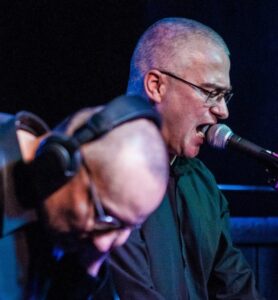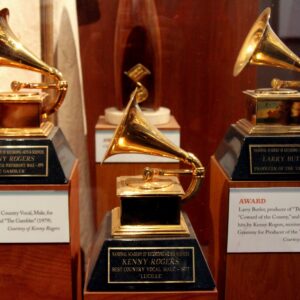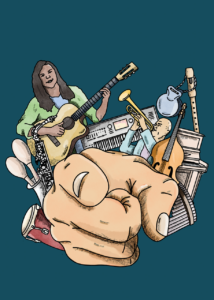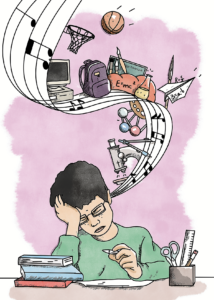Professor Richard Taruskin is one of the most distinguished musicologists of our times. In the conversation with Karolina Kizińska he gives away a backdrop of the process of writing famous “The Oxford History of Western Music” and says what a musicologist has to do to write for “The New York Times”.
Karolina Kizińska: How did it happen that you dedicated years of your work to Russian music? Did you feel the connection with your Russian heritage?
Richard Taruskin: I don’t have a Russian heritage. Many of my older relatives were born in Russia. If you asked them where they were born, they would have said Russia but they never regarded themselves as Russians. And certainly the Russians never regarded them as Russians because they were Jews. The language that my grandparents and my great aunts and uncles spoke was Yiddish, not Russian. They came from different parts of the Russian Empire (at that time it included what is now Latvia, Lithuania, Belarus, Poland, Ukraine and Moldova). My parents were born in the United States and didn’t speak Russian. So we certainly didn’t feel that we were Russians.
KK: So this fascination was more a coincidence?
RT: It was neither Russian heritage nor a coincidence. One time I asked my grandfather, if we still have relatives in Russia. He said “no”. “How do you know?” I said (I was seven years old at the time). “Because they all would have to have died during World War II”. And the reason is that the parts of the Russian Empire which were inhabited by Jews were, of course, precisely the parts of the Soviet Union that were occupied by the Germans during the war. And so my father’s family came from what is now Latvia, my mother’s family came from what is now Ukraine. All those territories were occupied by the Germans, and the Jews of course were all murdered.
What my grandfather didn’t know, was that after he had left Russia (he emigrated to the United States in 1907 and he had no contact with any relatives in Russia), many of the relatives had moved to Moscow. It was after the revolution when it was possible for Jews to live anywhere in the Russian territory. So we had a whole branch of the family who grew up in Moscow, speaking Russian, and feeling much more like Russians than members of my grandfather’s generation. And because of a curious set of circumstances my Russian relatives found out about us in America. And one of them begun writing to his half-brother who lived in Los Angeles. But because he wrote in Yiddish this half-brother didn’t understand it and sent the letter to my father, who did know the language. And that’s how the exchange of letters and gifts started between my father and his cousin in Moscow, that eventually led to visiting. I received many gifts from this uncle and I had to write him thank you letters – that was the first reason I had to start learning Russian. So I did. I was already interested in music at that time, I planned to do a doctorate in musicology. I didn’t plan to do it in Russian music but I thought if I do, I could apply for a travel fellowship to meet my relatives. So that’s what I did. Purely cynical. I wanted to meet my relatives in Russia so I picked a Russian music subject. And then, after I started doing a research and running the dissertation, I became genuinely interested, and stayed with it afterwards. So you see it was unexpected but it wasn’t an accident and it certainly wasn’t because of my Russian heritage 🙂
KK: I’m sorry for assuming you have a Russian heritage.
RT: Oh that’s fine! Everybody makes this mistake. In Berkeley I used to tease the ethnomusicologists. If any of them was studying their own ethnic or national heritage I would always tease them: “Is that a good idea to study your own heritage?”And they would always say: “What about you?” 🙂 And then I would tell them what I’ve just told you. Actually Russians think of me as “the other”.
KK: Really?
RT: Oh yes. That is another long story. I spent a year in Moscow to do my doctorate research as I’ve just told you. This was in 1971, this was the Soviet Union and things were very different from now. There was very little interchange between Soviet and American musicology. I think I was the first American stationed at the Moscow Conservatory. And in the dormitory where I lived, there was only one other person who spoke English. He was from Britain and he was a dance student at the Bolshoi Ballet. His name was also Richard so we had a lot of interesting mistakes there. After I left and came back to America, all the friends I made said to me: “Please don’t write to me”. And the reason was that they were musicians and they wanted to be able to tour abroad. If it was known that they had a friend living abroad, they probably would not be able to get a VISA. So I had no contact with my Russian friends or Russian musicologists until after the end of the Soviet Union, when they begun to reorient themselves more internationally. And some Russian musicologists begun reading my work in English and writing to me and that was a bases for a whole new relationship with Russian musicologists.
KK: When did you go back to Russia?
RT: In 2006. For thirty four years I never went to Russia, had no contact with Russians. Now I have a new relationship with Russian musicologists and my ethnic heritage means nothing. I don’t feel that they regard me as anything other than a colleague in Russian music. But when I was a student I was often advised not to let it be known that I was Jewish. Because there was, as you know, in Soviet times quasi official Anti-semitism. There is still plenty of Anti-semitism in Russia but it isn’t official now. So I feel there’s a greater potential professional attention. So that’s also a difference. The fact that I’m not ethnically Russian doesn’t matter now, it might have somewhat then.
So, one tiny question, and such a long answer.
KK: Well I don’t mind 🙂
RT: This way we’ll be here all day 🙂
KK: How did you start writing for the New York Times? And what should today’s music critic be like?
RT: Should be like me 🙂
KK: Of course 🙂
RT: Well this too was a long story because anything like this is a question of unexpected good luck. Everything in my career has been a matter of good luck. So how did I get involved in the New York Times. In 1983 a man I know named Kenneth Cooper, who was a harpsichordist, introduced me to a man named James Oestreich, who was editing a new music magazine, Opus, and wanted people to write for it. But before he did, he had been the classical music editor in the magazine called “High Fidelity”, which was a magazine for record collectors. And this has a lot to do with the fate or the history of classical music in America.
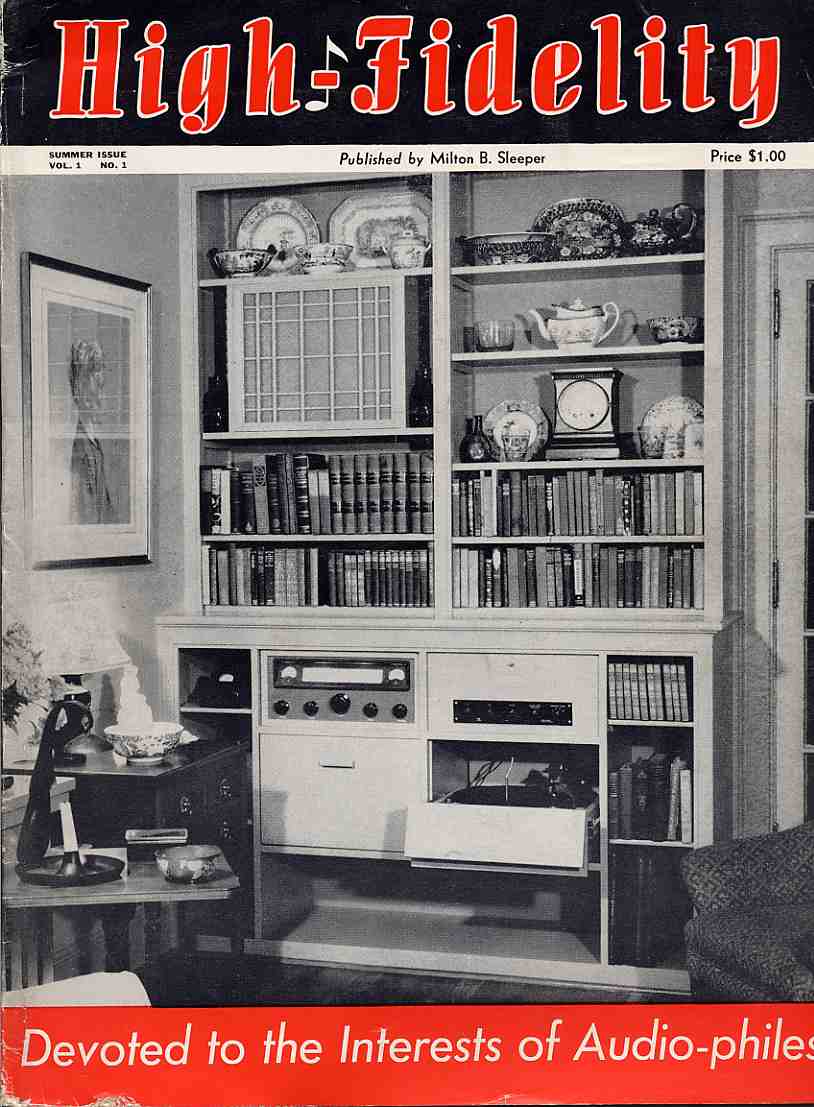
High Fidelity Magazine, source: https://www.hifilit.com/
When “High Fidelity” magazine begun, which was in the 1940s, there were whole lot of magazines for collectors. It was all classical music and there were several magazines like that – there was a “High Fidelity”, “Stereo Review”, “The American Record Guide”, and there still are a couple in Britain – “The Gramophone” for example. It was taken for granted that serious record collectors were collecting classical music but in the 1980s (I should say late 1970s, 1980s) there was an enormous change in consumption patterns for music. Things actually begun to change in the 1960s. This is something that sociologists studied. People who used to give up listening to popular music for classical music or jazz when they went to college (because those were grown up kinds of music) – stopped doing that . It goes back to the time of The Beatles, The Rolling Stones. It became intellectually respectable to listen to popular music in 1960s. So the effect of it was that the magazines that had been formed devoted to classical music now had to share space with popular music.
At first they would share the space in the way that classical music would be in the front of the magazine, and popular music would be in the back. But in the early 1980s High Fidelity magazine decided to reverse that – put the popular music front, classical music back. At this point James Oestreich decided he would not go along with this. He resigned and started his own magazine, Opus magazine. And my friend Ken, who worked with him in High Fidelity, went with him to this new magazine. And James Oestreich asked: “who else can I get to write?”
KK: And your name came up?
RT: Yes, Ken recommended me. So I was writing for this new magazine, which was a wonderful magazine. It didn’t last very long, only five years (1983 to 1988). But I wrote for it very regularly. In my very early years in Berkeley (I went to Berkeley in 1987, so at the very end of that period of my work for Opus magazine I was in Berkeley already), in 1988, the magazine folded. James Oestreich went to Cleveland to write the program notes for the Cleveland Orchestra. So I thought “well, this was fun for a while, writing for this magazine called Opus”. I really enjoyed it – the magazine was different from any magazine that had existed or still exists.
In music journalism there’s the professional journals (The Musical Quarterly, JAMS) and then there were the fan magazines and the record magazines: High Fidelity, etc. And the style of writing of these two was very different: these were very pretentious, and these were kind of silly. Opus magazine was right in the middle. You would get very serious writers to write long articles, very serious articles about how you perform music, comparing lots of recordings. So I found that a very congenial place to write. I did that very happily.
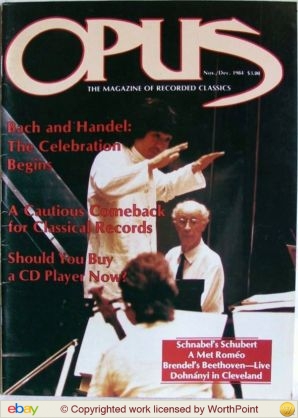
Opus Magazine, source: https://www.worthpoint.com/
KK: I think I know what you mean because I enjoy writing for MEAKULTURA magazine as well. MEAKULTURA has the same goal: to combine professional writing about music with a language that is understandable not only to university professors but to anybody interested in music, and with a wider range of topics considered worth writing about.
RT: Oh good. I wish you luck.
KK: Thank you. So how did the story about James Oestreich go?
RT: After one or two years James Oestreich came back to New York and took over as the music editor at The New York Times. And so once he was there, he asked the people who used to write for him for Opus magazine to write for The Times. So that’s how I got to writing for The New York Times. I was the only one who actually did it regularly. Several others who had written for him for the Opus magazine wrote a few pieces and they stopped for some reason (I don’t know why, I didn’t ask them). But I continued, as long as he was at The Times. So my first piece in The New York Times appeared in 1990, and my last piece in the Times appeared in 2013. I don’t think there’ll be any more because James Oestreich retired, so I no longer have an editor there. But that’s how… Pure chance. Just a matter of knowing somebody at the right time. So that’s why I say, I look back at my career and I see one lucky thing after another.
KK: So much luck!
RT: I’ll tell you another lucky thing. My book about Stravinsky was the first book on Stravinsky’s music that made extensive use of his archives: all of his musical sketches, the manuscripts, letters, etc. And the reason I was able to do that was also thanks to luck.
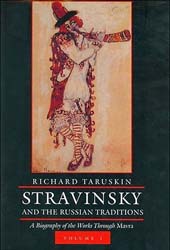
R. Taruskin, “Stravinsky and the Russian Traditions: A Biography of the Works through Mavra”, source: https://prelectur.stanford.edu/
I had started to work seriously on Stravinsky in the late 1970s and I had it in my mind, that I will write a book about him. So I begun to write to Robert Craft, Stravinsky’s assistant. And Robert Craft was at first very helpful to me, so I asked him if I could see some of the manuscripts that he listed at the appendix of a book on Stravinsky (by Eric Walter White) that was published in 1960s. And he said: “Well, if you want to see any of these manuscripts, you’ll have to apply to the lawyers”. Robert Craft and Stravinsky’s children were engaged in a lawsuit over the disposition of Stravinsky’s manuscripts. So the only way to get to them would be through the lawyers, who would then negotiate both with Robert Craft and the children. So I sent a letter to the lawyers saying what I wanted to see but they wrote back: “Oh, that’s much too much. Pick one thing”. So I wrote the lawyers again saying what I wanted to start with. And then no letter back. So after months and months I thought: “Well, I’m just not going to be able to ever see those manuscripts, I have to do it like everybody else has done and just work inferentially from the texts”.
And then I had a sabbatical at Columbia, where I was then teaching before Berkeley, in 1983. That was when I thought I was going to start writing a book, during my sabbatical year. And then I got a phone call from my former student at Columbia, who was now working in the Library of the Performing Arts at Lincoln Center, who said: “Did you know that pending the outcome of this law suit the New York Public Library has been made the temporary custodian of Stravinsky’s archive?”. I said: “I certainly did not know that”. “Well yes, starting… [and he gave me the date] it would be open to the public. As long as the New York Public Library, which is a public library, is the custodian, it will be available to the public”.
I. Strawiński, “Mavra”
So look at me: I’m on sabbatical and I lived only ten minutes on the subway from the Lincoln Center. So I lived in Lincoln Center for the whole year. Could you imagine something luckier than that? So this is what it’s been like for me. One lucky thing after another. But this is true, I would say, of almost anybody’s career. Nobody foresees what their career would be like. You’ll see 🙂
KK: Well, we’ll see if I have a career:). There are almost no jobs in the Humanities in Poland these days. That leads me to my next question: what is it like in America? Do musicologists have problems finding university positions?
RT: It’s the same in America. This is the truth to the Humanities everywhere. Fortunately for our pupils in Berkeley, they manage to get jobs. It’s partly because we have good students, and partly because we still have a good reputation. But it isn’t a Polish or American problem, it’s a problem of the Humanities everywhere. It is much easier to find jobs in Science and Technology than it is in the Humanities. And it’s another reason for me to feel lucky. Because I was looking for a job at a time when it was easier to get a job.
KK: You need luck of course, but also incredible talent to make use of these opportunities!
RT: Absolutely. I don’t mean to say that it’s pure luck. You need luck and you need talent. Neither luck nor talent in itself is sufficient. And, all right, I had both. That’s another way to put it 🙂 I had a lot of great opportunities that I never could have foreseen and I was able to make use of them. But still, with all the talent in the world you still need luck.
KK: And what a musicologist has to do, to be offered writing a history of music by Oxford University Press? How did that happen?
RT: Another story of luck. To begin the story properly I have to go back to another book called Music in the Western World which is the book I wrote jointly with another man, Piero Weiss. The fact that I was included in this book was also luck because he was the one who had the contract. And because he found that he was having a hard time getting started, he asked if I wanted to collaborate with him. I was a junior colleague of his – we were both graduate students but Piero was about 20 years older than cause he was a pianist before he studied musicology.
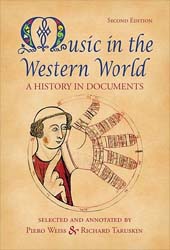
R. Taruskin, P. Weiss, “Music in the Western World: A History in Documents”,
source: https://prelectur.stanford.edu/
So I did it with him. And then it took a long time for this book to be published. The publisher that we submitted it to had a lot of turnover in the personnel, a lot of people leaving, coming in, and leaving, and coming in, so the book went 8 years without getting published. And we were about to have a lawsuit. But all of the sudden they brought in a wonderful editor who brought the whole thing out quickly. The book was very successful.
We felt we owed this editor, her name was Maribeth Payne, a lot. And she thought she owed us a lot, because it was her first published book, and it turned out to be a big success. So she’s had a very good career in music publishing. And Maribeth, who was very inventive, had the idea that there should be a music history text by the musicology faculty in Berkeley, jointly authored. She proposed this idea to us all at an AMS meeting. We agreed but it actually didn’t go anywhere – we are all bunch of prima-donnas you know :), we’re not a good team. We’re fine colleagues but we don’t want to work together. So the idea went nowhere. But then one day, this was in 1991, I met Maribeth again while in New York for the Conference on Performing Mozart’s Music (it was a Mozart year) at the Juilliard School. And during that conference she asked me: “You know that book, that Berkeley History of Music that never got written? Want to write it all by yourself?”. The idea however was to write a textbook, one volume. Do you know the Grout’s History of Western Music? Well “Grout” came out in 1960s and from the beginning everybody said they hated Grout. So “let’s write a better book”. And nobody ever succeeded in superseding Grout. For over 50 years it’s been a market leader. So that’s what they wanted: a book like Grout but hopefully better than Grout.
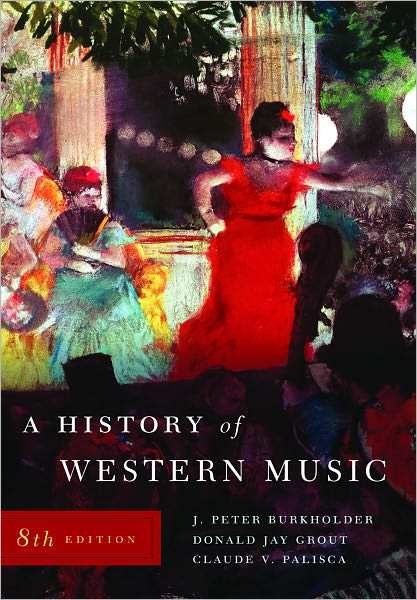
D. J. Grout, C. V. Palisca, History of Western Music / Edition 8,
source: https://www.barnesandnoble.com/
KK: And you agreed?
RT: Yes, I said: “All right, I’ll try”. I sat down to write it and it almost immediately became apparent to me that I wasn’t going to write one volume textbook but something else, and it was coming out much, much too long. And so I thought to myself: “How am I going to control this, how am I going to get it down to the size that they want?” And then a voice in my head said: “You mustn’t even try to do that because if you start worrying about how long this book is, you will never be able to write it. Just write what you want and later on worry about the length”.
By the way, this happened with Stravinsky too. It was supposed to be a short book. So when it comes to writing books I seem to have Wagner’s scale. Then I thought to myself: “This is not the book that they have contracted, I think it’s a much better book, maybe they’ll think so too. If I’m lucky they’ll catch the same mental disease from me”.
And it happened with Stravinsky. So when I was writing The Oxford History I thought the same: “I think what I’m doing is better than what they’ve asked me to do, at least better for me, so let’s hope they get crazy too”. And it happened again. But it was Maribeth who did this. Because before leaving Oxford and going to Norton, where she is now, she told her fellow editors about this project and gave them chapters to read. And one of the editors that she told about the project was the music editor for the Reference Division. The Reference Division at Oxford publishes books like The Grove Music Dictionary, 20 volumes, or Grove Dictionary of Art, 30 volumes. So my little 5 volumes was nothing to her 🙂 So she said: “This is good, let’s publish it”. So that’s how – I did something crazy! I was supposed to write one volume, 1000 pages and I wrote 5000 pages. See Karolina, I’ve had so much luck.
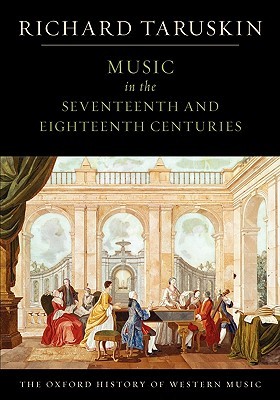
R. Taruskin, “The Oxford History of Western Music” , source: https://www.goodreads.com/
KK: You should share!
RT: Well if I could, I would. You know you cross a threshold at some point in your life, when you stop being a person with a future and start being a person with a past. I still want to write more books so I’ve still got some future but I do have considerable past now to look back on. And that’s when I begun realizing how blessed my whole career has been. I’m very grateful.
KK: How did the process of writing Oxford History of Western music look like?
RT: I did it in a most straightforward possible way. Fortunately part of the process of commissioning the book was that I had to write the detailed chapter outline. I was so glad that I had to do this. This is not my usual way. I don’t think that’s anybody’s usual way. But I had to do this in order to get the contract for the original one volume textbook.
So I just sat down to write chapter one and I went all the way through to chapter sixty-nine. I went in order and because I had this very detailed outline I always knew what I had to do next. It doesn’t mean that it came out exactly like the outline. Nothing ever does. I didn’t know with equal detail or equal depth all the subjects I would have to cover. One of the great pleasures of writing the book was that all of a sudden I had not only the need to read but also the time to read all the books, all the articles that I never had time to read. It was because I had a certain amount of leave time. Some of it was sabbatical, some of it was offered to me by Oxford. So I did a lot of reading on the way but I always knew what to do next because I had this outline.
KK: So when did you write that first sentence?
RT: It was in the fall of 1994 and it was: “Our story begins, as it must, in the middle of things”. And because of that first sentence I knew from the beginning what the last one was going to be (I wrote it in 2001): “Our story ends, as it must, in the middle of things”. So you know I had the beginning, I had the end and all I had to do was to fill in the middle 🙂 And I finally wrote that last sentence in January of 2001.
(Extracts available here: https://prelectur.stanford.edu/lecturers/taruskin/excerpts.html)
So it was from the first to last, the easiest possible way. All it took was time. But you know by the time I started writing the book I had many years of experience teaching this material. And I had taught all phases of music history for years before I became to be known as a specialist in 19th-20th century Russian music. So the students in Berkeley are always amazed to see that they know my lectures already, that that’s the Oxford History (it was more detailed versions of lectures I’ve given – same examples, same everything). And I say to them: “Yes, of course it’s the Oxford History, because the Oxford History is my lectures”. So that’s why I felt qualified to write the book.
KK: And do you see the fact of including women composers into your narrative to be of big importance?
RT: Oh yes, of course. The question is: how do you put them in. Nowadays there’s an enormous amount of social pressure to make the narrative as inclusive as possible in terms of gender, race. There’s a certain danger in that. If I were to put as many women composers into the story as today’s social pressures would demand, it would distort the story. After talking about the work of three important woman composers (Hildegard of Bingen, the Comtessa di Dia and Barbara Strozzi) I thought:
“Now I’ve got to answer this question: Why have there been so few women mentioned in this book? That’s the time to talk about social prejudice, the fact that women didn’t have access to, as a Marxist would say, the means of production and didn’t have access to the media of dissemination”.
The only women who figure in music history up until the 18th century were all noble women. Or they were like Hildegard, she was an abbess, she was the top of her social hierarchy. There’s a whole special section where I say all of this. And I say that that’s not a reflection on endowment but a reflection on women’s social position. That they were not given the opportunity to compose music, although they were given the opportunity to perform it, starting in the 16th century in Italian courts, and then in the 17th century in opera. But performers don’t figure in the history the way composers do. So I thought explaining all that would be a better way of writing the history of talking about women in music. And then in the chapter on Mendelssohn I talk about Fanny Mendelssohn (and of course I talk about Clara Schumann while talking about Robert Schumann – why is it that these women are appended to more famous men? Same reason again). And while talking about Fanny Mendelssohn I did something that I thought was sort of clever. I included a song by Fanny and put it right next to one by Felix Mendelssohn (you know she was publishing under his name), without saying which one was which. I ask the reader:
“Can you tell which one was written by Fanny? You probably can’t. So if you want to know you have to look it up because I am not going to tell you”.
Fanny Mendelssohn, “Verlust” op. 9, nr 10.
Felix Mendelssohn Bartholdy, “Ferne” op. 9 nr 9.
And I thought that way I proved my point (which may not be such a popular point with feminist music historians) that there’s nothing essentially feminine about music by women. As there’s nothing essentially masculine in the music of male composers. Even though the work of some composers is taken as a great exemplar of masculinity and the work of other might seem more feminine (like Chopin or Schubert), it’s simply a matter of stereotyping. This was my way of proving it: putting two songs, one by the brother, one by the sister. And you can’t tell which is which. And in those days nobody could also tell which one was which because Fanny was publishing her music as her brother’s. So I think that saying all this is better not only for writing history but also better for the idea of the equality between the genders. To explain the former inequality rather than try to make up for it through what they call mainstreaming. I don’t believe in mainstreaming.
KK: You are still (for another semester) an active professor at the University of California, Berkeley. How would you describe the intellectual atmosphere at the Music Department there? What makes it one of the best music departments in the world?
RT: Oh boy, it’s really an easy thing to answer. What makes it one of the best departments? I’m glad you think that it is. It’s the faculty. What is the intellectual atmosphere like? Well, we try to maintain it as a congenial place because that’s the basis on which we hire people. You know in America academic hiring is done by colleagues and not the administration – it is up to us who tends to come. There are institutions where the administration takes a more active role – Harvard is one – and where even though the department recommends new members, it is the administration that gets the final say. In Berkeley it never happened that the department recommended a person for hiring and the university said no. So we hire people who are congenial.
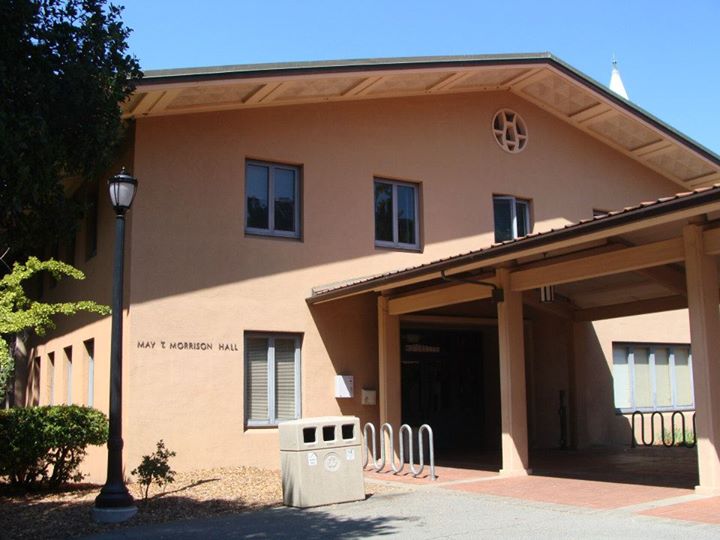
Music Department building, UC Berkeley. Photograph by Karolina Kizińska
We have searches going on now. You knew Kate van Orden, right? Well she left, she’s in Harvard now. So right now they’re searching to replace her. And then they’ll be searching to replace me. I have nothing to do with those decisions because I think nobody should have the right to designate a successor. Even though we talk informally among ourselves, and I’m happy to say that the person that I would want as my successor is also somebody my colleagues want. But we’re not having the search yet so don’t ask me who 🙂
KK: But until now you participated in making these decisions?
RT: Yes, sometimes I took a major part in the choices. And we look for people who are intellectually congenial to us. That’s all. The main question when it comes to personnel is: do you want to designate that it should be a person with this specialty or do you want just the best person you can find? If you’re going always for the best person you can find you don’t always manage to cover all particular periods. Such is the case in Berkeley. You know, you were there at a time when we had nobody doing medieval music. And we still have nobody. There’s a chance we’ll get one now, when we’re looking for a Kate’s replacement, because the department has announced that we look for somebody who specializes in music before 1700. And we hope somebody good will materialize. But it is always risky when you identify the era you’re searching for so we’ve always just hired the best person we could find. My idea’s always been that if you have a Bach specialist and the best person among the applicants is also a Bach specialist, well, hire that person and you’ll have a Bach center 🙂 So in Berkeley we don’t have a secret. We just hire the best people. That’s the way it was when I came too – I was joining the faculty where there were some famous senior professors, e.g. Joseph Kerman and Daniel Heartz. They hired me purely because of the same reason – we intellectually have a kinship. I thought it was a tremendous compliment to me that they wanted me as a colleague. And I suspect that’s always the way it’s been at Berkeley.
KK: And it’s also difficult to be a graduate student there as well.
RT: Is it difficult? Well we have a demanding program but when kids get through it, they are very well prepared. As I told you – they have advantage in the job market. So I didn’t realize that, but if it’s thought that Berkeley has especially challenging, demanding program and that having gone through it makes you well equipped – that’s good. I’m glad.
KK: Why did you decide to participate in the conference in Toruń?
RT: I’ve never been to Poland. That’s it. I like to go where I’m asked.
KK: Which Polish composers do you like the most?
RT: Well I love Szymanowski. He’s the one of many composers whose music I truly love that are not mentioned in the Oxford History. And there are many like that. You may ask: “Why not?” It’s because my feeling is that the story is what counts. And there has to be a good reason for the sake of the story why I’m including a person, not because I happen to love the music. But all right: Szymanowski, Lutosławski, all the ones you’d expect, Karłowicz, Panufnik. And there’s this one polish composer whose music I’m very interested in but almost haven’t heard at all – what I have I liked but I would love to hear more – Roman Palester. He was very important in the period between the wars. If you read anything at all from the music journalism of the 1920s and 1930s you come across this name all the time. He was very important figure in the International Society for Contemporary Music, and his music was played very frequently at their concerts. He seems now to have disappeared from Polish music history.
Roman Palester, “Passacaglia”
KK: Do you see any interesting changes in the early music performance since your 1988 article, “The Pastness of the Present and the Presence of the Past”? Are today’s performers more aware of the impossibility of the “authentic” performance in your opinion?
RT: Of course they are. I don’t think anybody talks about authenticity that way anymore. I don’t take complete credit for that. You know Christopher Hogwood just died, and it was his way of doing early music – very fashionable and powerful in 70s and 80s. But the field had changed. And I was the symptom of that change, is how I would put it, rather than a cause of that change. So early music now is much more eclectic than it used to be. Much more interesting as well. And nobody, I think, is making the kind of claim that was often made 30 years ago, that “We’re doing it the way it was done when the composer was there”. Anything like that. People realized that we’re not entitled to make such a claim and that to make a claim like that is to assert a false sort of authority. Anyway I’d like to think this. At the same time the field has continue to grow. Even as it’s gotten less dogmatic. And I think those two things are related. That if the field stayed dogmatic it would have never grown. I’m happy with how things have turned out with early music. But there are still people who talk about authenticity, original instruments and making it the way it was when it was first performed. There is now a recording of The Rite of Spring in the old early music style, using only instruments of that very period, 1913 (which makes a big difference with some of the winds instruments, it’s true). They’re uncovering all of these early variants of the text and all the original instruments. And what comes out sounds just like performances of Mozart and Beethoven from the 1980s, very light and very brisk. And the idea of doing the Rite of Spring this was is absolutely insane but it’s being done with the old dogmatism in place. But I think that generally this kind of thinking is in the past.
KK: You’ve written about music in a postliterate society and how in a world “after everything” literate music has been finally dethroned, with postliterate musical media taking its place. How do you see the role of the internet in this light?
RT: The internet is of course the main symptom of that. Music software that enables you to compose without actually writing anything down. But there’s been that possibility since electronic music. Whether I think literacy has been dethroned…? I would not say that. Because the theme that has been going through the Oxford History of Music from the beginning to the end, is that nothing was ever dethroned and replaced but the new possibilities were always being added. So for example when musical notation begins, non literate or pre-literate practices continue for centuries. And in fact there are still such things, even in classical music. That is when you study an instrument, you will learn by imitating your teacher, not necessarily by anything that is mediated by notation or by any kind of writing. When musicians rehearse, a lot of it is not directly related to the written music but they sing to each other, and play for each other, and they imitate directly with their ear. So pre-literate practice still exists. And I think that in the future there’ll still be art historians that read from notes, that there’ll still be a reason for learning to read music. So all those people who think that the end of the literate tradition is going to be next week or that it’s going to be total – I’m not one of them, I mean neither of those things. I mean that now there are other alternative means that there didn’t used to be. It also means that there are more possibilities. I don’t think in the future the main mode of transmission would be literate but it would still be a mode.
KK: And the last question: how do you feel about retiring?
RT: I think it’s going to be nice because life will become nothing but reading, writing and travelling. The only thing I’ll miss is being in contact with students. But I’ll still have some of that (dissertations for several more years). And as long as I’m healthy I’ll keep on going to colloquia, being present on campus. I always want to know the graduate students whoever they are. There is a certain sadness to what’s happening now. After each undergraduate lecture now, I take home the records that I use in my classroom because I won’t be teaching from them again. And some of these recordings I’ve been using since even before going to Berkeley. So bringing them home and putting them on a different shelf – there is a certain finality to that. But I am looking forward more than I am looking back. So even though I said earlier that instead of a person with a future I’m a person with a past – I still have a future. And I’m still concentrating on the future – thinking about what I’ll write. And I don’t think I’m going to miss so much being in class – if I feel the need of companionship I’ll just come hang out. Since I’ve been recovering from the operation, I have to walk a lot and I find that people are very happy to walk with me. I think I’ll keep on doing that. If people want to see me and meet me I’ll propose a walk. So if you ever come back to California come to say hello and take a walk with me.
KK: I hope I will one day.
RT: I hope so too. You never know.
KK. Thank you for the interview professor.
RT: You’re welcome.
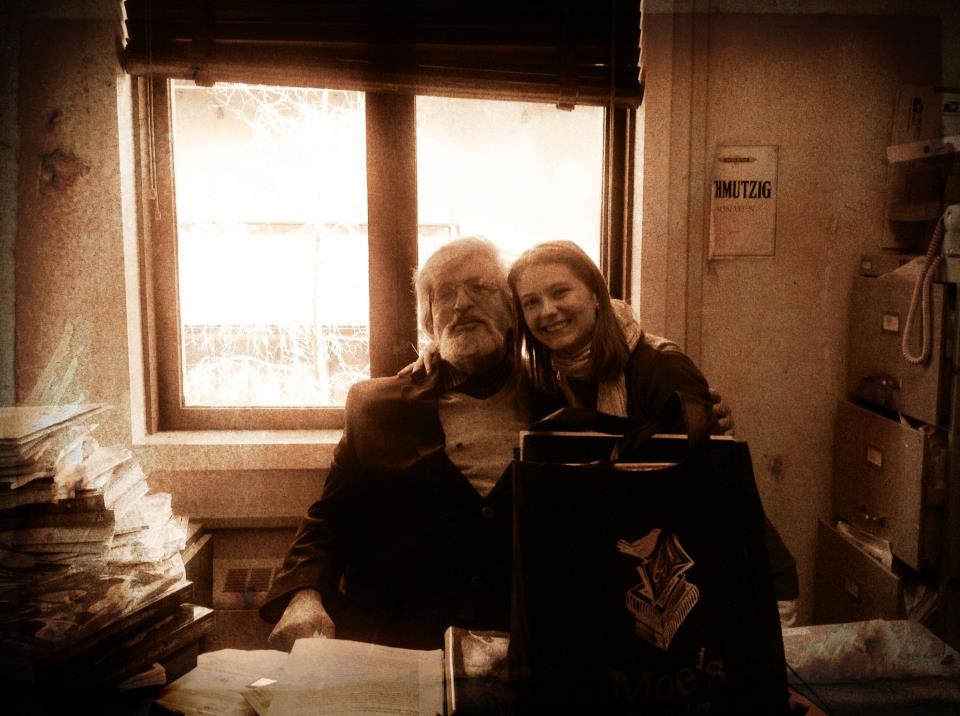
Prof. Richard Taruskin with Karolina Kizińska, Berkeley 2013.


